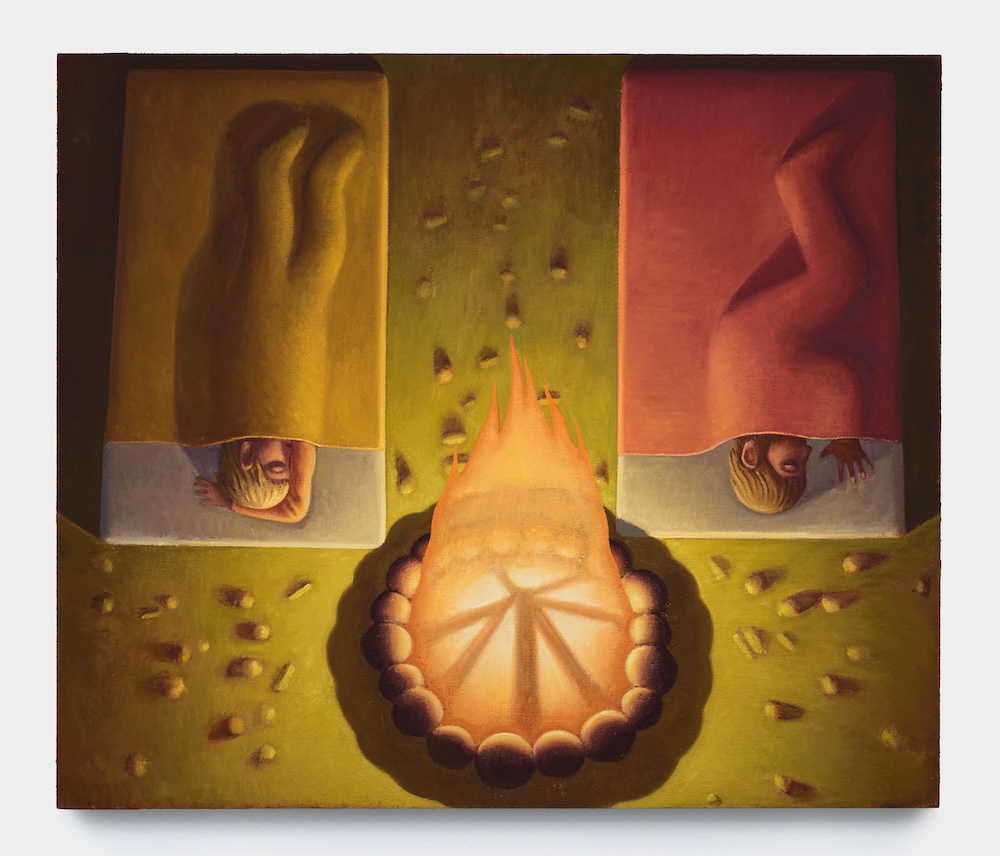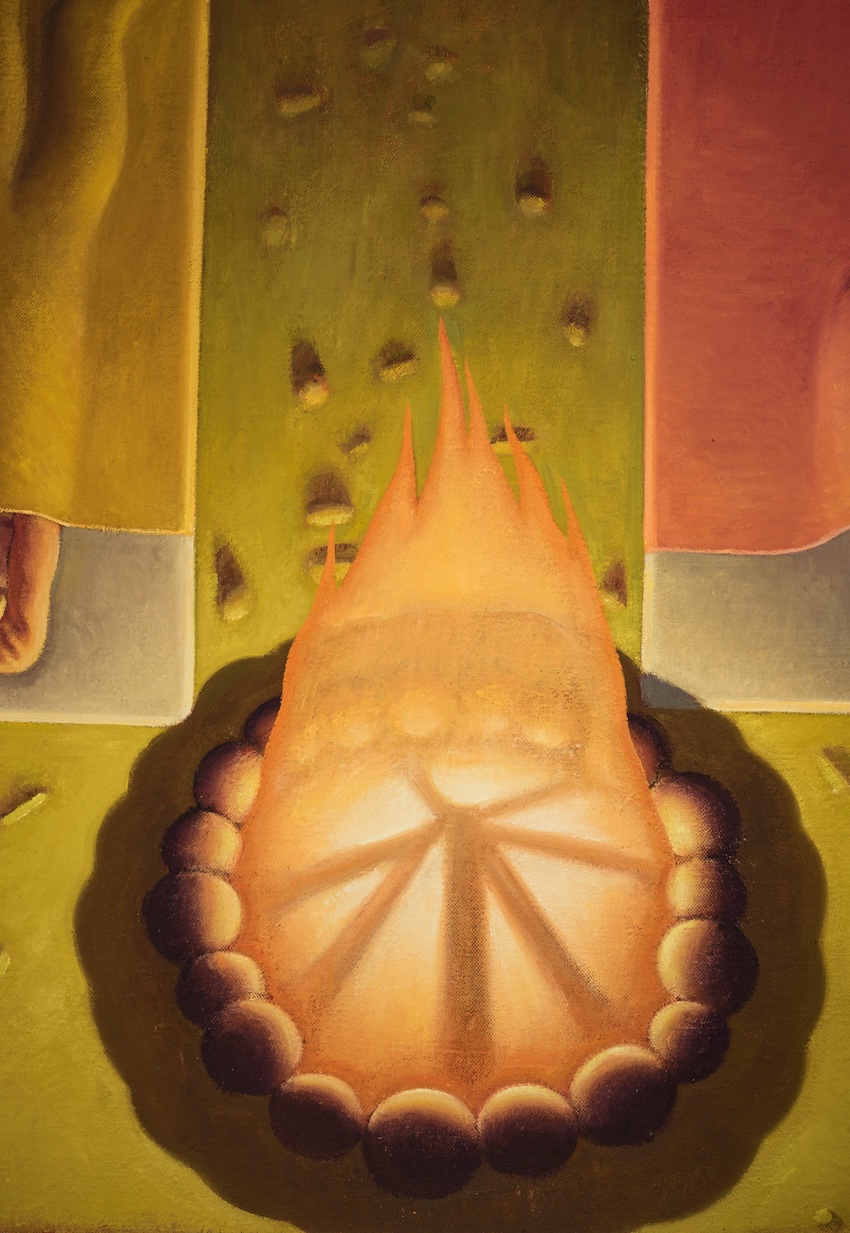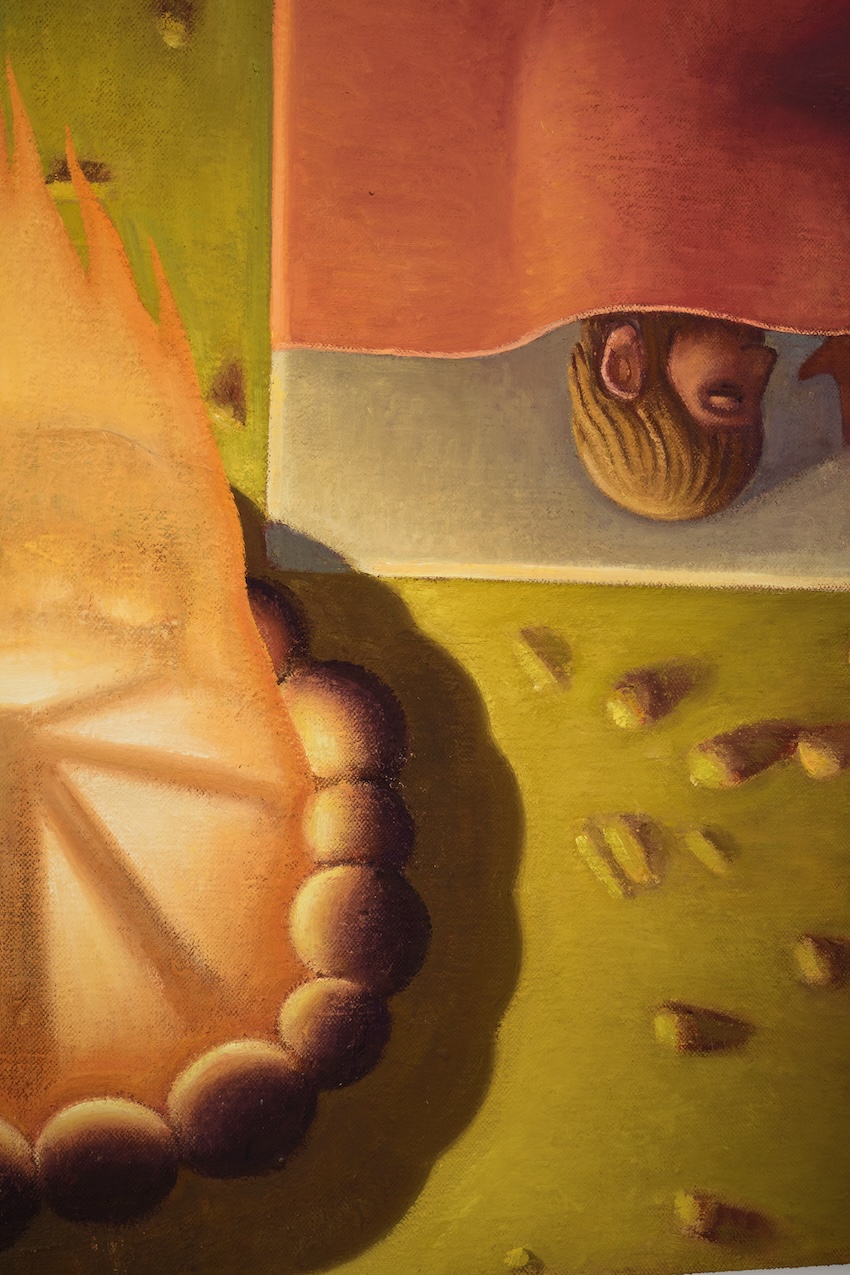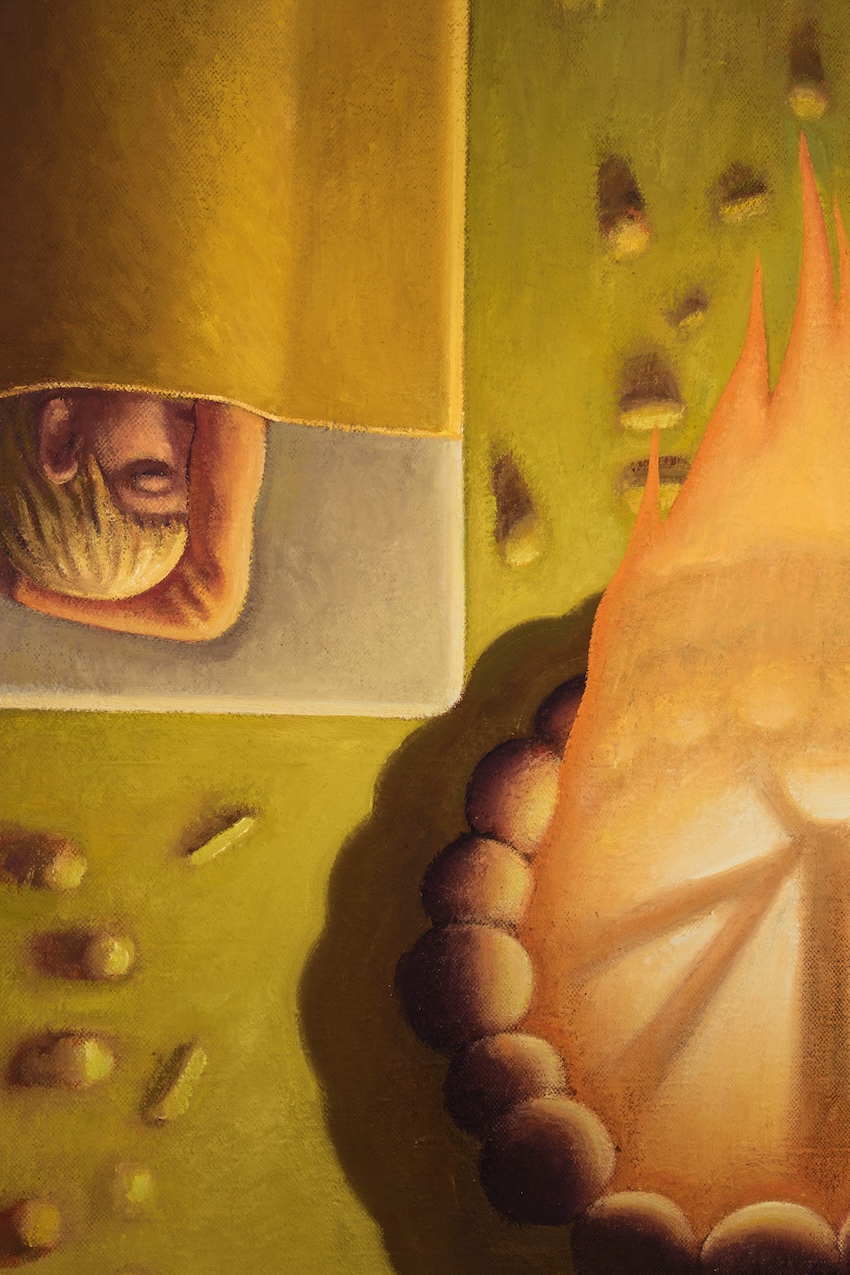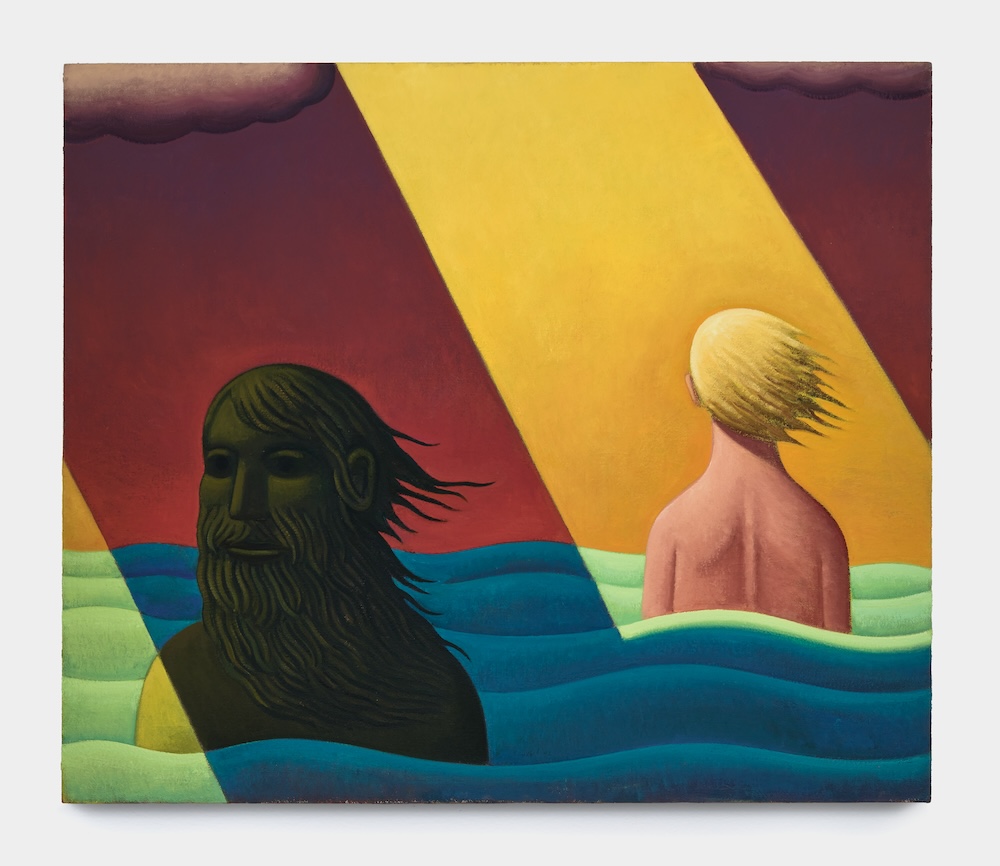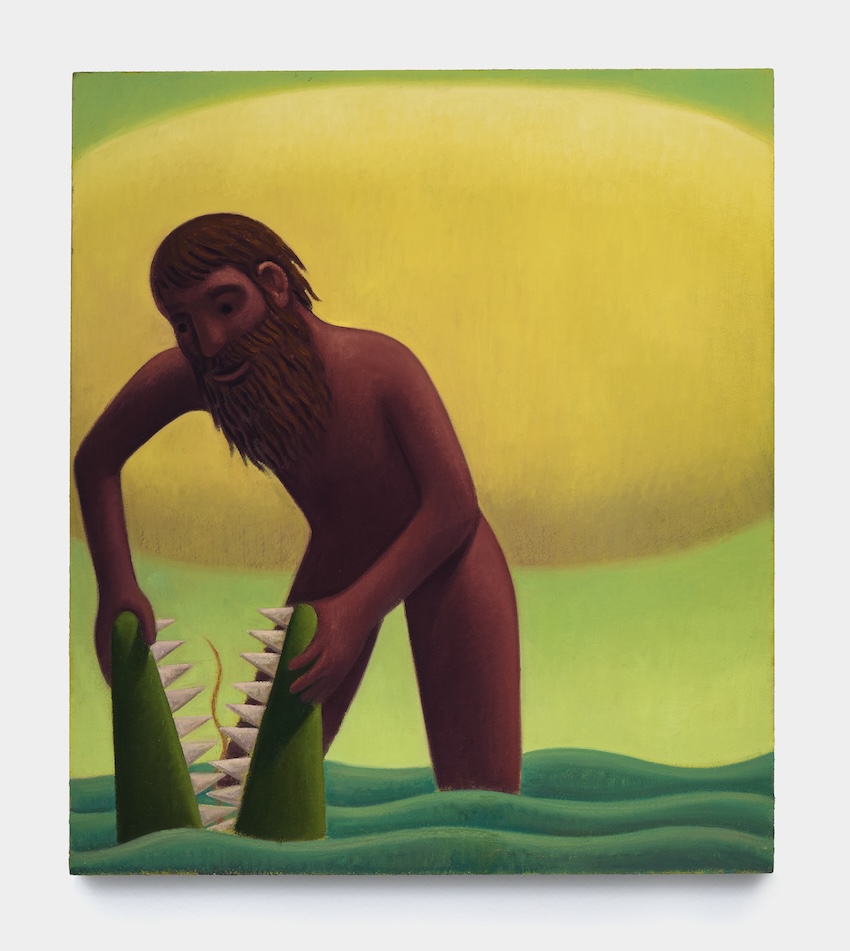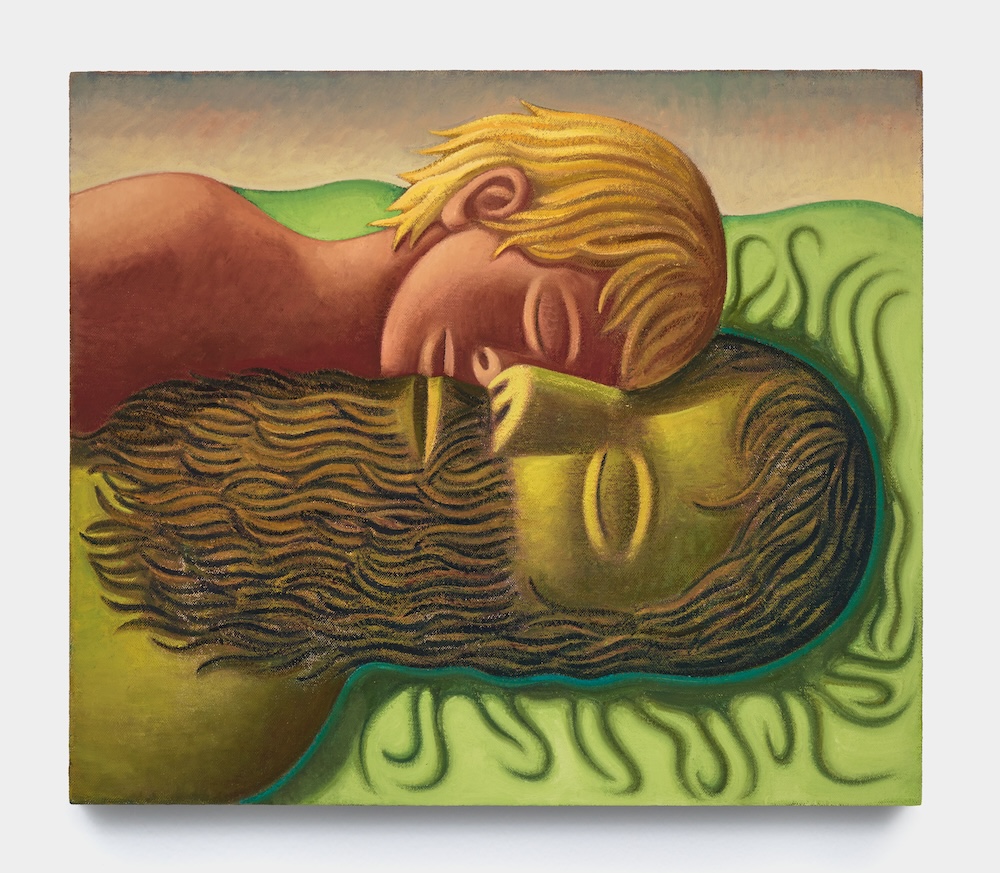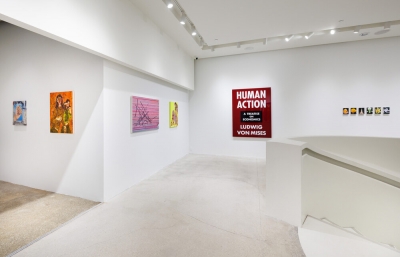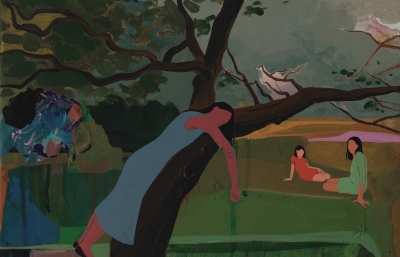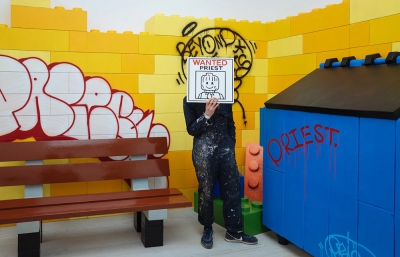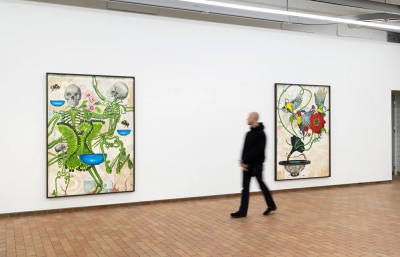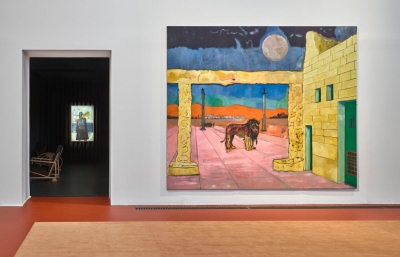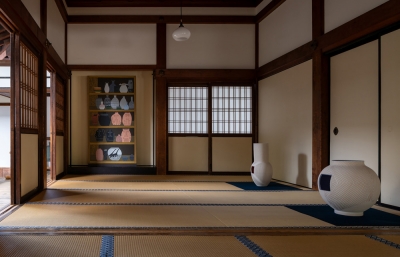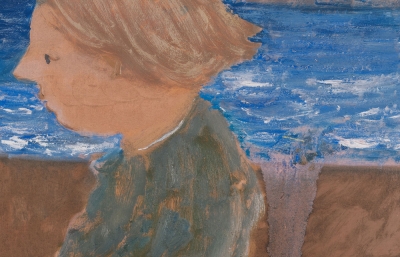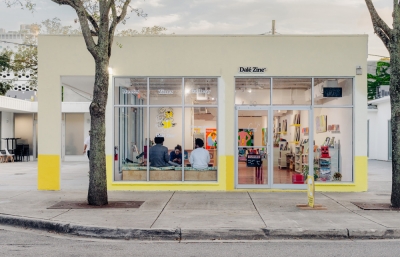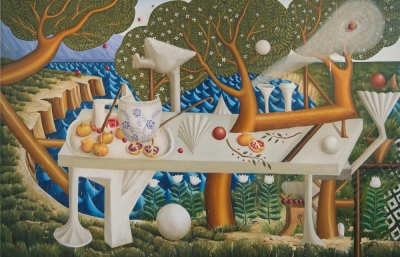Next week, M+B will open Tomorrow, the Flood, an exhibition of new works by Nat Meade. In Tomorrow, the Flood, Nat Meade offers an intimate and poignant reimagining of masculinity, fatherhood, and human connection, pushing exploration of male archetypes to new depths. The paintings are a synthesis of existential anxiety and tender vulnerability that gestures toward the fragility of human bonds.
Meade’s figures—stoic yet deeply human—are caught in moments of reflection and care, sometimes absurd, often poignant. Balsa, positions a father as a kind of life-support system for a child. The figures' entanglement—both literal and emotional—reads as a meditation on reciprocity in caregiving, upending traditional notions of patriarchal authority. Meade borrows from the pathos of classical iconography but reframes it through his own contemporary lens, suggesting the precariousness of both generational and ecological inheritance.
This fragility is central to Seedling, where a bearded figure reclines, legs splayed, as a delicate flower emerges from the ground beneath him. Meade's humor subtly balances the weight of his themes: a meditation on legacy and an acknowledgment of the awkwardness of forging meaning in a chaotic world.
The greens and blues in pieces like Leviathan evoke the sensation of water and rising tides, speaking directly to the show’s titular "flood"—an ambiguous symbol of crisis, transformation, and renewal. These aqueous environments, coupled with Meade's almost sculptural forms, allow the work to float between historical references and timelessness.
The built-up painting surfaces are a testament to Meade’s meticulous process, which involves months—and in some cases over a year—of layering paint, scraping it down, and making small adjustments over time. This methodical approach imbues the work with a tangible depth, enhancing the weight and presence of the figures and their environments.
Meade draws inspiration from depictions of familial intimacy in art history, from the tender portrayals of mothers and children by Paula Modersohn-Becker to Henry Ossawa Tanner's The Banjo Lesson. His figures oscillate between humor and anguish, between the weight of tradition and the yearning for connection, bringing a vulnerability to fatherhood and masculinity that rejects the violence and stoicism often embedded in its archetypes.
In Bedroll, the artist’s exploration of these themes comes full circle. Two figures, swaddled in blankets, lie side by side around a campfire. Their faces are obscured, save for glimpses of vulnerability—a hand poking out here, a soft curl of hair there. The image captures the strange, fleeting intimacy of shared silence, perhaps alluding to the weight of the unspoken in familial bonds.
Tomorrow, the Flood feels as though it’s both reaching backward and forward—into the weight of inherited trauma and the unknowns of the future. It is no surprise that Meade, himself a father, reflects on the anxieties of preparing children for an uncertain world. Amid fears of rising waters—both literal and metaphorical—his figures persist, fumbling toward connection, intimacy, and the hope of something better.



